|
|
|
Книги издательства «Cambridge University Press»

|
The new graded readers series of original fiction, adapted fiction and factbooks especially written for teenagers. Twins, Andy and Mary, are in Dublin on a school trip. When Mary discovers that she has been given a forged EURO20 note, she thinks she knows the identity of the forger. The twins start to investigate, but it soon becomes clear that the forgers know who Andy and Mary are too. This paperback is in British English. It is also available with a CD-ROM/Audio CD with vocabulary games and complete text recordings from the book. |

|
The new graded readers series of original fiction, adapted fiction and factbooks especially written for teenagers. It's Helen's twelfth birthday and her parents have something important to tell her. Her mum promises that the news won't change anything. But she's wrong. It changes everything. Nothing will ever be the same again, not for Helen, not for anyone. This is a British English version of the title. The book comes with a CD-ROM/Audio CD with vocabulary games and complete text recordings from the book. |

|
The new graded readers series of original fiction, adapted fiction and factbooks especially written for teenagers. Three vibrant stories by the famous New Zealand author Katherine Mansfield, selected and retold by Margaret Johnson. In one story, Laura and her family are preparing for a party when she makes a shocking discovery. In another, the magic and excitement of Leila's first dance is challenged by the words of an old man. And finally, Isabel, Kezia and Lottie receive an amazing present but there is trouble when they choose who to show it to. This paperback is in British English. It is also available with a CD-ROM/Audio CD with vocabulary games and complete text recordings from the book. |

|
The new graded readers series of original fiction, adapted fiction and factbooks especially written for teenagers. It is 1936 and Europe is on the road to war. Freddie is a working-class English boy who is desperate for more excitement in his life. When he reads about foreign volunteers heading to the war in Spain, he knows what he must do. This paperback is in British English. It is also available with a CD-ROM /Audio CD with vocabulary games and complete text recordings from the book. |

|
A series of twenty non-fiction science readers which engages children in the world around them. What makes fire burn? Why is water wet? What is air made of? You can find the answers to these and other questions about matter in Why Does Water Freeze? |

|
A series of twenty non-fiction science readers which engages children in the world around them. Why is the sea salty? Why do boats float? Why do I feel thirsty? You can find the answers to these and other questions about water and weather in Why Do Raindrops Fall? |

|
A series of twenty non-fiction science readers which engages children in the world around them. Why are flowers different colours? How do we know how old a tree is? How can plants grow in deserts? You can find the answers to these and other questions about plants in Why Do Leaves Change Colour? |

|
A series of twenty non-fiction science readers which engages children in the world around them. What holds up skyscrapers? Why are sports domes curved? Why are triangles used in many bridges? You can find the answers to these and other questions about structures in Why Do Bridges Arch? |

|
A series of twenty non-fiction science readers which engages children in the world around them. Where do animals live? Why do wolves howl? Can animals hurt me? You can find the answers to these and other questions about animals in Why Do Crocodiles Snap? |

|
A series of twenty non-fiction science readers which engages children in the world around them. Why do swings swing? Why do swings stop swinging? What makes things change direction? You can find the answers to these and other questions about movement in Why Do Swings Swing? |

|
A series of twenty non-fiction science readers which engages children in the world around them. What is magnetism? What is a magnetic field? What are a magnet's poles? You can find the answers to these and other questions about magnets in Why Do Magnets Attract? |

|
A series of twenty non-fiction science readers which engages children in the world around them. What makes up our galaxy? What is the Milky Way? What is the solar system? You can find the answers to these and other questions about the planets and stars in Why Do the Stars Shine? |

|
A series of twenty non-fiction science readers which engages children in the world around them. Why do spiders live in webs? Where do otters sleep? Why do bees make hives? You can find the answers to these and other questions about habitats in Why Do Spiders Live in Webs? |

|
A series of twenty non-fiction science readers which engages children in the world around them. What is light? What is white light? What is a polar night? You can find the answers to these and other questions about light and shade in Why Do Shadows Change? |

|
A series of twenty non-fiction science readers which engages children in the world around them. Why do I hear thunder after I've seen lightning? What is sound? How do our ears hear sound? You can find the answers to these and other questions about sound in Why Is It So Loud? |

|
A series of twenty non-fiction science readers which engages children in the world around them. Why are some clouds so dark? Why does lightning strike? What is a tornado? You can find the answers to these and other questions about weather in Why Does Thunder Clap? |

|
A series of twenty non-fiction science readers which engages children in the world around them. Are all birds able to fly? Is a dolphin a mammal? Where do lemurs come from? You can find the answers to these and other questions about animals in Why Do Monkeys Chatter? |

|
A series of twenty non-fiction science readers which engages children in the world around them. Why do we need forests? Is plastic harmful? Where are gold and gems mined? You can find the answers to these and other questions about the world's resources in Why Do Diamonds Glitter? |

|
A series of twenty non-fiction science readers which engages children in the world around them. Is the tongue a muscle? How do our bones move? Why do we sneeze? You can find the answers to these and other questions about how the body works in Why Does My Heart Pump? |

|
A series of twenty non-fiction science readers which engages children in the world around them. What causes floods? Why do volcanoes erupt? What is the difference between a volcano and an ice storm? You can find the answers to these and other questions about extreme environments in Why Do Glaciers Move? |
|